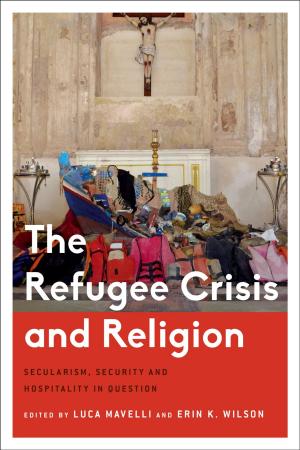Radical Skin, Moderate Masks
De-radicalising the Muslim and Racism in Post-racial Societies
Nonfiction, Social & Cultural Studies, Social Science, Discrimination & Race Relations| Author: | Yassir Morsi | ISBN: | 9781783489138 |
| Publisher: | Rowman & Littlefield International | Publication: | August 1, 2017 |
| Imprint: | Rowman & Littlefield International | Language: | English |
| Author: | Yassir Morsi |
| ISBN: | 9781783489138 |
| Publisher: | Rowman & Littlefield International |
| Publication: | August 1, 2017 |
| Imprint: | Rowman & Littlefield International |
| Language: | English |
Radical Skin, Moderate Masks explores a voice trapped by the War on Terror. How can a Muslim speak about politics? And, in what tone can they argue? In today's climate can they "talk back" without being defined as a moderate or radical? And, what do the conditions put on their political choices reveal about liberalism and its deep and historical relationship with racism? This timely work looks at ongoing debates and how they call for Muslims to engage in a "de-radicalisation" of their voice and identities. The author takes his lessons from Fanon and uses them to make sense of his many readings of Said's Orientalism. He reflects on the personal and scholarly difficulty of writing this very book. An autoethnography follows. It shows (rather than tells of) the felt demand to use a pleasing "Apollonian" liberalism. This approved language, however, erases a Muslim's ability to talk about the "Dionysian" more Asiatic parts of their faith and politics.
Radical Skin, Moderate Masks explores a voice trapped by the War on Terror. How can a Muslim speak about politics? And, in what tone can they argue? In today's climate can they "talk back" without being defined as a moderate or radical? And, what do the conditions put on their political choices reveal about liberalism and its deep and historical relationship with racism? This timely work looks at ongoing debates and how they call for Muslims to engage in a "de-radicalisation" of their voice and identities. The author takes his lessons from Fanon and uses them to make sense of his many readings of Said's Orientalism. He reflects on the personal and scholarly difficulty of writing this very book. An autoethnography follows. It shows (rather than tells of) the felt demand to use a pleasing "Apollonian" liberalism. This approved language, however, erases a Muslim's ability to talk about the "Dionysian" more Asiatic parts of their faith and politics.















